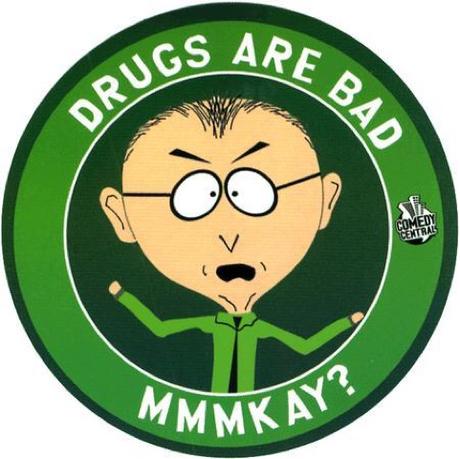A vision quest is the name given to a rite of passage of several Native American tribes. A drug, like peyote, is ingested for the purpose of receiving guidance from spirits or relatives who have passed. This vision quest represents the transition from childhood to adulthood.
In almost every ancient and indigenous culture drugs were regarded as sacramental. They were, as in a vision quest, used to connect with the divine, seek guidance from spirits and departed relatives, and to find oneself.
But in modern society, and in my personal experience, people don't use drugs to find God or themselves, or even to feel good. They use drugs to feel less bad.
The intention going into drug use defines the experience of that drug.
Jesus was rebuked as a drunk in scripture by the Pharisees. But He was not, His intention made all the difference.
Hippocrates said that we should make our food our medicine and our medicine our food. Food is a drug. At a hospital my wife worked at food was monitored and restricted by doctors as its effects were every bit as positive or detrimental as a dose of medication.
And when Prozac was released it became known in SLC as "Sandy candy" because so many people were on it. Strange that those who are so Mormon they think having a coffee table is against the word of wisdom think pharmaceutical grade narcotics and mood stabilizers are totes legit.
I've heard people say "I only take what my doctor prescribes rather than anything illicit because I don't want to compromise my health, sanity, or sobriety."
A drug is a drug. Whether prescribed by a doctor or bought on State Street, a drug is a drug.
The idea that most Americans have about drugs is that once exposed to something like heroin, one becomes an addict.
There was a famous test done on rats where they were put into a cage with one bottle of pure water and another with cocaine laced water. The rats inevitably became addicted and eventually overdosed.
But this test does not mean what you think it means. The test is flawed. Because the rat is in a cage. It has no freedom. It's life is that of a prisoner and is not indicative of a true life experience.
Another test was recently done. Wherein a bunch of rats were put in a park of sorts with toys, other rats, all manner of food and drink and also with cocaine laced water.
The rats being able to eat whatever they wanted, to play with toys, to play with each other, to socialize, to have sex, had no use for the cocaine laced water. It went largely untouched in this experiment. Why?
Maybe because they had connections. They had a rich and fiddling life. They had no need for addiction. Because maybe the opposite of addiction is not sobriety. Maybe the opposite of addiction is connection.
These experiments may explain why drug use is rampant among veterans, the mentally ill, and the poor.
Or even the average Anerican given what modern society does to the average person.
My wife has lupus and is in and out of hospitals routinely. She has been given drugs that are several times as potent as heroin. And so have many of our elderly relatives after a knee or hip replacement. But few of those people have ever come home a raging junkie. Why?
In my experience with drugs and alcohol I can tell you drugs like marijuana or magic mushrooms amplify a feeling of connectedness or oneness. And in our modern society we have the best technology in human history with instant global communication. And yet we seem to be less connected than ever. As a result drug use and addiction has skyrocketed.
In Portugal all drugs have been made legal for years now. And drug addiction is treated as a health issue rather than a criminal justice issue. As a result, addiction is at an all time low. It's nearly nonexistent. Why?
Maybe because those who do become addicts are treated by doctors and recieve counseling, they get connected to job programs, and social programs to reinstate them back into society in a healthy and stable way. They are reconnected rather than isolated as in the American "justice" system.
Intention is everything. In modern society we have the idea that true happiness awaits us in the next job, partner, city, or achievement. But until we find happiness wherever we're at, we will never find it anywhere else.
With that attitude toward drug use we then find happiness only during the high. So then, to be happy we must always be drunk or high.
With the attitude of drugs being sacramental we look for guidance, we look for connectedness, we look deeper within ourselves, we look deeper into one another, and we experience nature and the universe as it is.
We become self aware in ways we would not have otherwise. We become connected to one another in ways that last long after the high has faded away. We have used the gifts of nature to become connected or to feel and sense the connections that have been there all along. We lose the distractions that have blurred our vision.
Drugs are like technology. They are everywhere. They are not inherently good or evil. They are inanimate. They are only as good or as bad as the one who wields them. They are only as good or bad as the intention behind their use.
Drugs are everywhere. We all have a relationship with drugs. The question is, do we have a healthy relationship with drugs?

